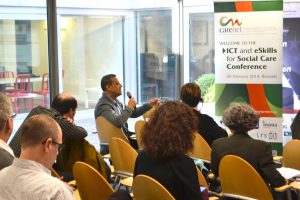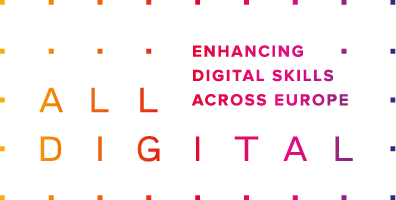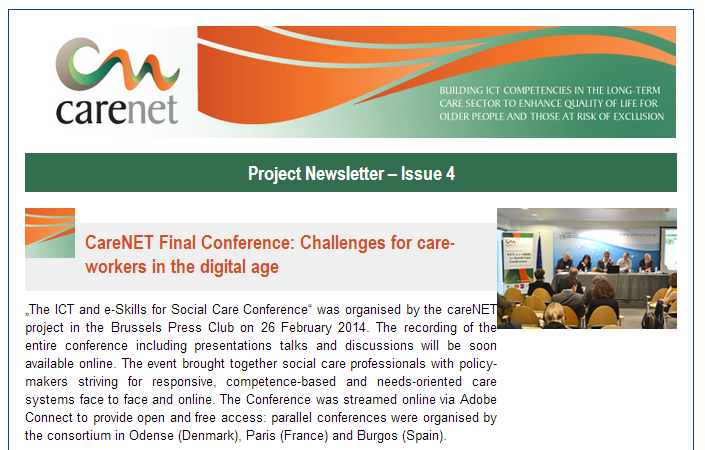27 Feb ICT skills in home care: it is not about replacing carers by robots
27 Feb, 2014
By Masha Tarle
The last 50 years in Europe have witnessed the growth of an ageing population. Coupled with the integration of even more women into the work force, the phenomenon has left an employment gap in the home care sector, often filled with informal and non-declared work, mostly done by unskilled migrant female workers. But the situation has also brought opportunities for ICT to enter the home and provide new solutions to old problems.

The conference was moderated by project officer Laure Llermet of the French-based Iperia Institute with Telecentre Europe acting as the host organisation in Brussels. For a full list of partners in the project please visit www.carenetproject.eu. Those interested in the conference will find the recording of the whole conference (it was streamed in Adobe connect) on the project website.
ICT is only the enabler
The conference keynote was delivered by Ms. Marie-Beatrice Levaux from the newly created European Federation for New Family and Household Employment, who provided an inspiring overview of the many issues at hand. According to Ms. Levaux, the demand for adequate and flexible homecare solutions is on the rise: the sector has a potential to employ up to 20 million people by 2020 in the following years. However, many of the caregiver jobs will not be declared as such by their employers, and the profession itself is not sufficiently recognised by society. All of this causes carers to be excluded from opportunities to improve their skills. In that sense, both formal trainings and informal opportunities to engage carers in ICT competencies will surely constitute a step into the right direction. Ms. Nena Georgantzi, from the AGE platform, stated in her intervention that bringing ICT to the homes of the elderly and care recipients in general is not about “replacing carers by robots”- it is rather making sure that technology can do what it is best suited for, while the carer makes sure all the rest needs are being met. In that sense “ICT is only the enabler” of already existing processes and needs.

A participant addressing the panel at the conference
The CareNET project indeed addresses a very specific area of concern: the types of ICT skills which carers and the elderly would benefit from most in their daily life. Competencies that in the long run may influence for the better the quality of care received, the professionalization of care workers and the social inclusion of both groups into society. One of the results of the project has been to map the common and specific digital competencies of care workers and the elderly.
CareNET from theory to practice
The experience of the CareNET project in the different piloting countries has shown that older people and care workers can learn in a virtual learning environment (i.e. Moodle platform), that they are motivated to learn and that the carers are motivated to work and bring the best quality of care to their recipients. The piloting experience has also shown that each local context is different and has to be always taken into account when devising methodology and resources. More importantly, ICT – the hardware and software itself- have to be accessible, affordable in order to empower and remove barriers for social care.
Other issues
A leader of another European project with the same topic and scope as the CareNET project, stressed that in the case of bringing ICT skills to the elderly it is very important to give them the chance to explain what they need and like doing, and only then bring about the concrete learning opportunities with the exact ICT skills that can fill their needs. Some participants also raised the question of who will pay for bringing the technology to the elderly, as the majority of the elderly in Europe cannot afford the technology.
Another speaker reminded the audience hat the needs elderly have are not only related to problems and health, but also to the basic need of having fun and being included in social activities with others, be they presential or at a distance. Someone also suggested to bring the beneficiaries of the projects themselves- the elderly and the caretakers- to conference and workshops on the topic in order to review research from a practical standpoint.









